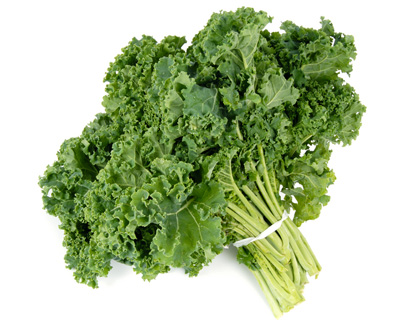Kale: A Green Nutritional Powerhouse Everyone Should Eat

A delectable green nutritional powerhouse, kale is one of many superfoods that is a must-have in any kitchen. Like other superfoods like blueberries and green tea, kale provides a wealth of nutritional benefits from cancer prevention to anti-inflammation. But what else can kale do for you?
Some of Kale’s Many Benefits
Kale is rich in iron, vitamins K, A, C, and minerals manganese and copper. It’s also high in fiber, low in calories, and has no fat. There are several things that make it a healthy food, like other healthy foods. But those things that elevate it to super-food level are not your average vitamins and minerals.
The antioxidant concentration in kale is truly remarkable. It is particularly rich in carotenoids and flavonoids. Lutein and beta-carotene are two carotenoids that work to protect the body from oxidative stress while also boosting eye health and preserving vision – both are found in kale. As a result, kale may reduce the risk of eye problems like macular degeneration and other health problems related to cellular stress like hardening of the arteries and COPD. In addition, kaempferol, a flavonoid, and quercetin are both tied to cancer-prevention, and like the other carotenoids, kale has plenty of them.
Another powerful substance in kale that has been shown to help activate the detoxification enzymes within the liver is known as sulforaphane. This compound is produced when you chew or chop the vegetable.
So, what can kale actually do for you? Given the power of the numerous beneficial compounds within the vegetable, it is likely that kale can provide:
- Protection against cancer
- Improved digestion
- Boosted immune function
- Vision health
- Heart health
- Anti-inflammatory benefits
- General detox
- Reduced cholesterol
A Few Tips on Preparataion
But before you go buy several bunches from your local supermarket, a few words on choosing and preparing kale.
Kale is one of the “dirty dozen”, containing a higher concentration of pesticides and chemicals. So, when possible, buy organic and local kale. Even better, grow it yourself. If you must buy it from a local grocery store, make sure you wash it well before eating.
Raw kale is great and cooking can reduce some of its nutritional potency. On the other hand, research has shown that steaming it can increase its ability to lower cholesterol. So, eat it raw and eat it steamed—kale is so good for you that you should be eating it a few times a week. And of course, juicing kale is a great option as well.
Labels: antioxidant, copper, diet, healthy, iron, kale, minerals, nutrition, vitamins







0 Comments :
Post a Comment
Subscribe to Post Comments [Atom]
<< Home